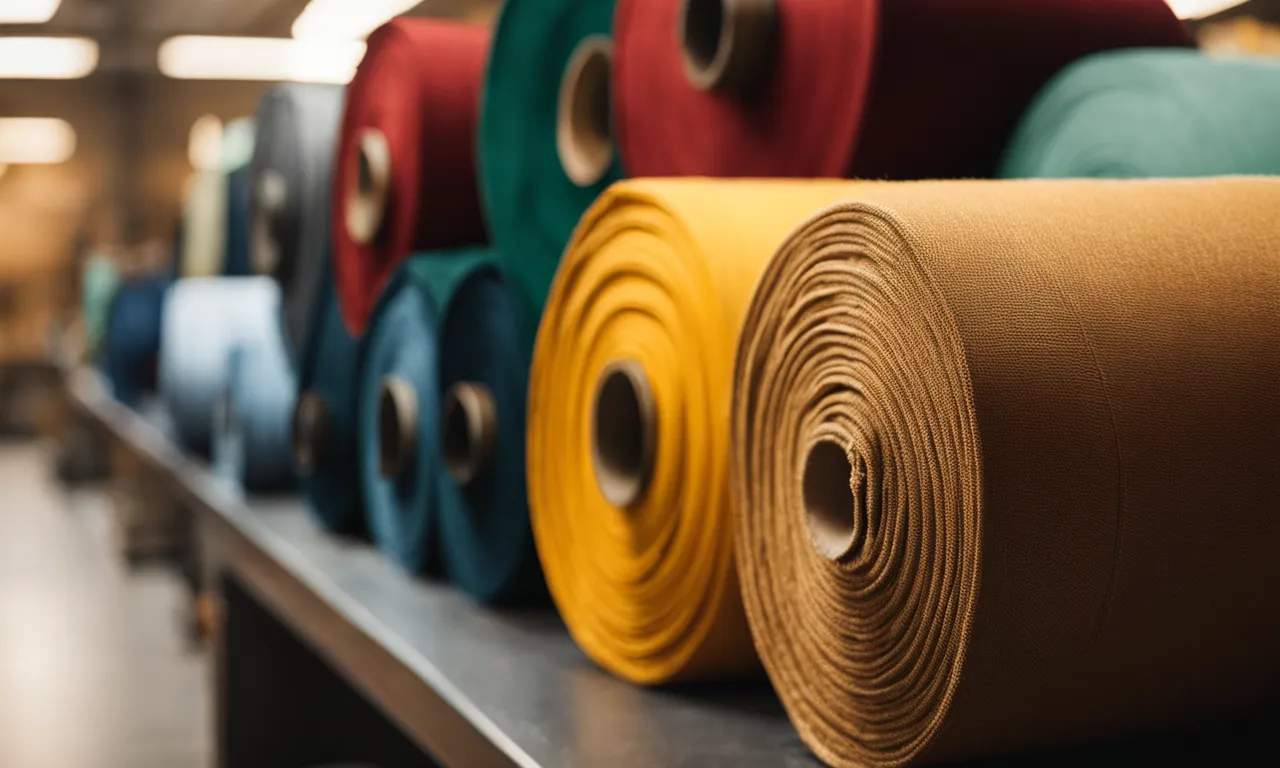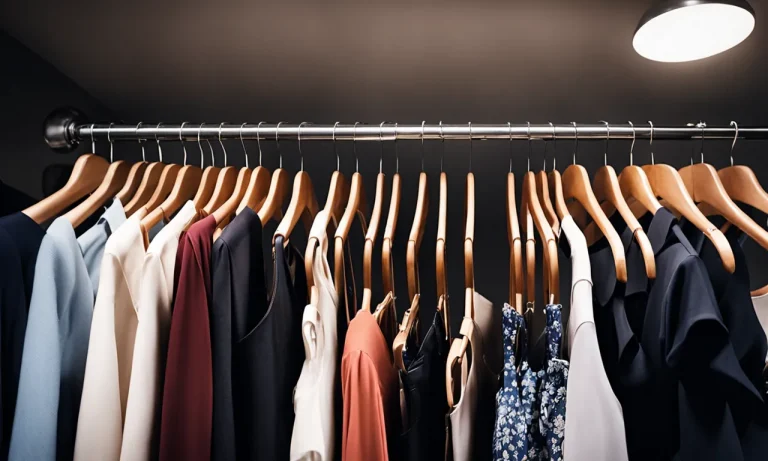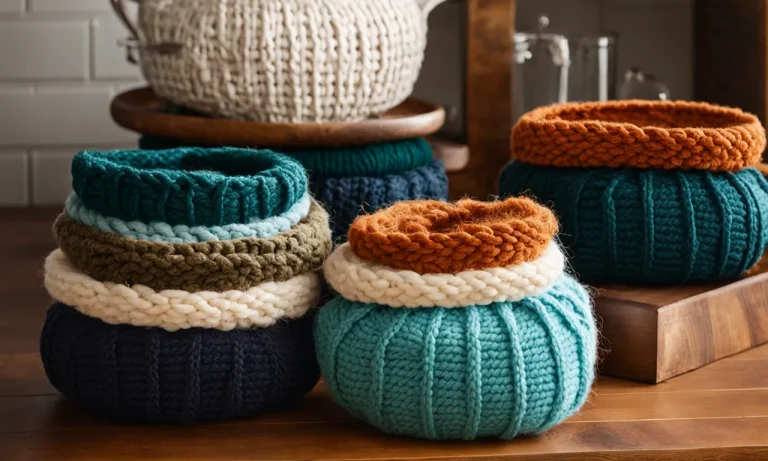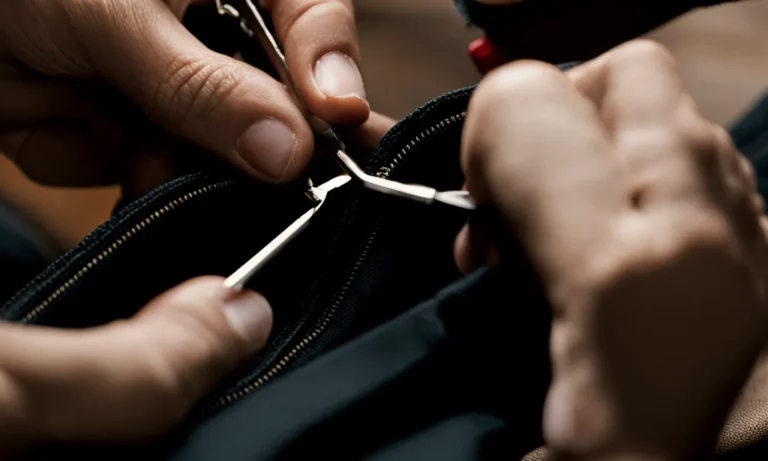Is Polyester A Good Material? Pros And Cons Of Polyester Fabric
Polyester is one of the most common fabrics used in clothing and textiles today. With its low cost, durability, and easy care, polyester has become ubiquitous in our wardrobes and homes. But is polyester truly a good material?
In this comprehensive guide, we’ll examine the pros and cons of polyester fabric to help you decide if it’s right for your needs.
If you’re short on time, here’s a quick answer: Polyester has benefits like affordability, wrinkle resistance, and stain resistance. But it also has downsides like not being breathable, holding odors, and releasing microplastics when washed.
For clothing, polyester works well for athletic wear but may not be ideal for everyday wear. Overall, polyester has its uses but natural fibers like cotton and wool have more benefits.
What Is Polyester?
Polyester is a synthetic fabric made from petroleum. It is a versatile material that has become increasingly popular in the textile industry. Polyester is created through a chemical process that involves combining monomers to form polymer chains.
These chains are then spun into fibers, which are used to create various types of polyester fabric.
Polyester is a synthetic fabric made from petroleum
Polyester is derived from petroleum, a non-renewable resource. The production of polyester involves the extraction and refinement of crude oil, which has a negative impact on the environment. However, it is worth noting that polyester can be recycled, reducing its environmental impact.
In recent years, there have been advancements in producing polyester from recycled materials, further reducing its carbon footprint.
It was developed in the 1940s as a substitute for silk
Polyester was first developed in the 1940s as a substitute for silk. During World War II, there was a shortage of silk, which led to the search for an alternative fabric. Polyester was found to have similar properties to silk, such as its smooth texture and lustrous appearance.
It quickly gained popularity as a more affordable and durable alternative to silk.
Polyester is used widely in clothing and home fabrics
Polyester is widely used in the fashion industry for its durability and wrinkle-resistant properties. It is commonly blended with other fabrics, such as cotton, to improve its breathability and comfort.
Polyester is also used in the production of home fabrics, such as curtains, upholstery, and bedding, due to its resistance to fading and staining. Additionally, polyester is known for its quick-drying properties, making it a popular choice for athletic apparel and swimwear.
Advantages of Polyester
Low cost and widely available
Polyester fabric is known for its affordability and accessibility. It is a synthetic material that is mass-produced, making it readily available in a wide range of colors and patterns. Whether you’re shopping for clothing, home furnishings, or other textile products, you’re likely to find polyester options that suit your style and budget.
This accessibility makes polyester a popular choice for both consumers and manufacturers alike.
Wrinkle and stain resistant
One of the major advantages of polyester fabric is its wrinkle and stain-resistant properties. Unlike natural fabrics like cotton or silk, polyester is less prone to wrinkling, which means less time spent ironing or steaming your clothes.
Additionally, polyester is known for its resistance to stains, making it easier to clean and maintain. This makes polyester a great choice for busy individuals or those who prefer low-maintenance clothing and textiles.
Durable and long-lasting
Polyester fabric is known for its durability and longevity. It is a strong and robust material that can withstand regular wear and tear, making it ideal for items that require frequent use, such as clothing, bags, and upholstery.
Polyester’s durability also means that it is less likely to fade or lose its shape over time, allowing your polyester items to maintain their appearance and quality for an extended period.
Easy to care for and quick drying
One of the reasons why polyester fabric is beloved by many is its ease of care. Polyester is machine washable, making it convenient for everyday use. Additionally, polyester dries quickly, reducing the time it takes to complete your laundry chores.
This quick-drying property also makes polyester a great option for outdoor and athletic wear, as it helps to wick away moisture and keep you comfortable during physical activities.
Versatile – can be made into many fabric types
Another advantage of polyester is its versatility. Polyester can be blended with other fibers or treated to create various types of fabrics with specific properties. For example, polyester-cotton blends are commonly used to create fabrics that combine the breathability of cotton with the durability of polyester.
Polyester can also be blended with elastane to create stretchy and form-fitting fabrics. This versatility allows polyester to be used in a wide range of applications, from casual clothing to high-performance textiles.
Disadvantages of Polyester
Not breathable or moisture-wicking
One of the major disadvantages of polyester fabric is that it is not breathable. Unlike natural fibers such as cotton or linen, polyester does not allow air to circulate freely, leading to a lack of ventilation.
This can make polyester clothing feel hot and uncomfortable, especially in warm weather or during physical activities. Additionally, polyester does not have good moisture-wicking properties, meaning it does not absorb sweat well and can leave the wearer feeling damp and sweaty.
Can hold odors
Another drawback of polyester is that it has a tendency to hold onto odors. The synthetic fibers in polyester can trap bacteria, sweat, and other unpleasant smells, resulting in garments that may require frequent washing to keep them fresh.
This can be particularly problematic for individuals who lead active lifestyles or for garments that are worn for extended periods of time.
Static cling
Polyester is notorious for its static cling properties. When wearing polyester clothing, it is common for it to stick to the body or other fabrics, creating an uncomfortable and sometimes embarrassing situation.
This can be especially frustrating during dry seasons or in environments with low humidity.
Not biodegradable – releases microplastics
A significant concern with polyester fabric is its impact on the environment. Polyester is a synthetic material derived from petroleum, and it is not biodegradable. When polyester garments are discarded, they can take hundreds of years to decompose, contributing to landfill waste.
Additionally, when polyester is laundered, it releases microplastics into water systems, which can have detrimental effects on aquatic life and ecosystems.
Can melt at high temperatures
Due to its synthetic nature, polyester has a relatively low melting point compared to natural fibers. This means that when exposed to high temperatures, such as from an iron or a hot stove, polyester fabric can melt or warp.
It is important to take caution when using heat near polyester clothing or fabrics to avoid damage.
While polyester fabric has its disadvantages, it also has numerous advantages such as its durability, wrinkle-resistance, and affordability. It is important for individuals to consider their specific needs and preferences when choosing clothing or other products made from polyester.
Polyester for Clothing
Polyester is a synthetic fabric that has gained popularity in the fashion industry due to its versatile nature. It is known for its durability, wrinkle resistance, and quick-drying properties. While polyester may not be everyone’s first choice, it does have its advantages and is commonly used in a variety of clothing items.
Well-suited for athletic and performance wear
One of the main reasons polyester is favored for athletic and performance wear is its ability to wick moisture away from the body. This means that it keeps the wearer dry and comfortable during intense physical activities.
Additionally, polyester is lightweight and breathable, allowing for better airflow and ventilation. So, if you’re looking for workout gear that will keep you cool and dry, polyester is a great option.
Used widely in casual clothing like t-shirts
Polyester is frequently used in the production of casual clothing items, such as t-shirts. Its affordability and ease of care make it a popular choice for everyday wear. Polyester t-shirts are known for their vibrant colors and resistance to fading, making them a great choice for those who want long-lasting garments that still look great after numerous washes.
Not ideal for tailored clothing or formalwear
While polyester has its benefits, it may not be the best choice for tailored clothing or formalwear. Its synthetic nature can give it a less refined appearance compared to natural fabrics like silk or wool.
Polyester may also have a tendency to retain odors, which can be a disadvantage in formal settings where you want to maintain a fresh and clean appearance.
Blends well with natural fibers like cotton and wool
Polyester blends seamlessly with natural fibers like cotton and wool, resulting in a fabric that combines the best properties of both materials. The addition of polyester to these blends can enhance the fabric’s durability and wrinkle resistance while still maintaining the comfort and breathability of natural fibers.
So, if you’re looking for a fabric that offers the best of both worlds, consider opting for a polyester blend.
Polyester for Home Textiles
Polyester is a popular choice for home textiles due to its durability, versatility, and affordability. It is frequently used in a variety of household items such as sheets, pillows, and curtains. The synthetic nature of polyester allows it to resist wrinkles and retain its shape, making it a practical and low-maintenance option for bedding and window treatments.
Frequently used in sheets, pillows, curtains
Polyester sheets are known for their softness and smooth texture, providing a comfortable sleeping experience. They are also resistant to fading and staining, making them a practical choice for busy households.
Polyester pillows offer excellent support and retain their shape over time, ensuring a restful night’s sleep. Additionally, polyester curtains are available in a wide range of colors and patterns, allowing homeowners to easily find the perfect style to complement their decor.
Upholstery and carpeting also contain polyester
Besides home textiles, polyester is commonly used in upholstery and carpeting as well. Upholstered furniture made with polyester fabric is known for its durability and resistance to wear and tear. It can withstand daily use and is easy to clean, making it an ideal choice for households with children or pets.
Similarly, polyester carpets are stain-resistant and retain their color and texture even in high-traffic areas.
Good for outdoor furniture cushions
When it comes to outdoor furniture, polyester fabric is an excellent choice for cushions. It is fade-resistant and can withstand exposure to sunlight and other weather elements. Additionally, polyester cushions are quick-drying, making them suitable for outdoor spaces that may experience rain or humidity.
Their durability ensures that they can withstand frequent use and maintain their appearance for years to come.
Not as breathable as cotton or linen
While polyester offers many advantages, it is not as breathable as natural fibers such as cotton or linen. Polyester does not absorb moisture well, which can make it feel warmer and less comfortable in hot and humid conditions.
If breathability is a priority, it is recommended to opt for cotton or linen textiles for bedding and curtains, especially during the summer months.
Conclusion
Polyester is a versatile synthetic fabric that offers benefits like affordability, durability, and easy care. However, it has some clear disadvantages when it comes to comfort, breathability, and environmental impact.
While polyester works well for athletic clothing and outdoor furnishings, it may not be the best choice for tailored garments or bedding. By understanding both the pros and cons of polyester, you can make an informed decision about when and where this affordable fabric makes sense for your needs.







